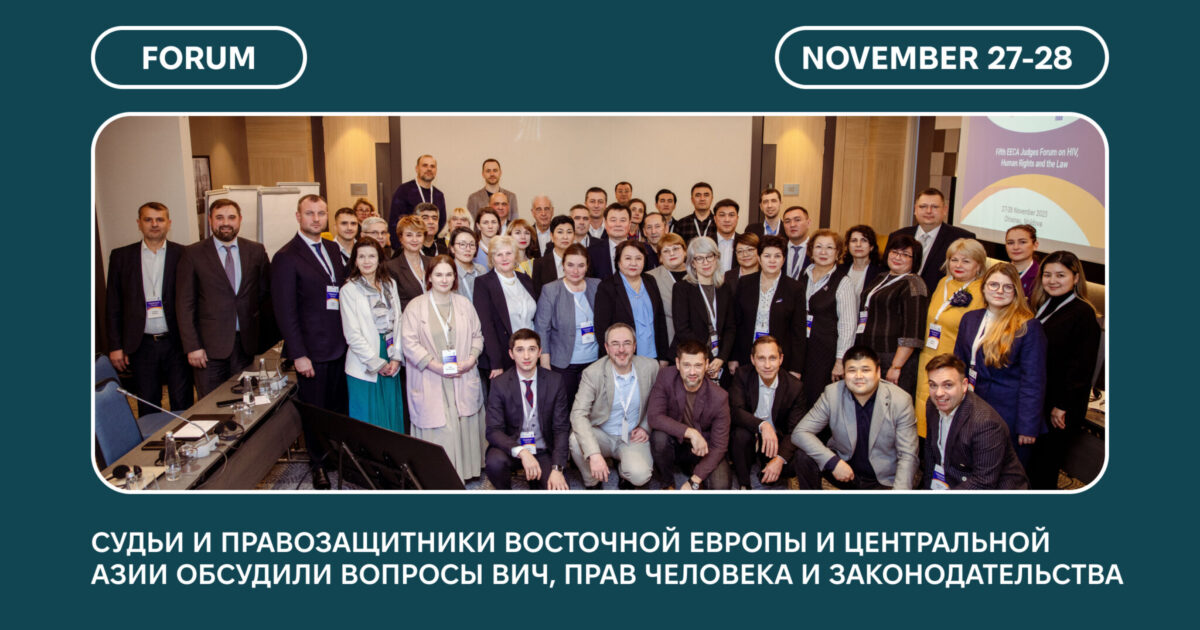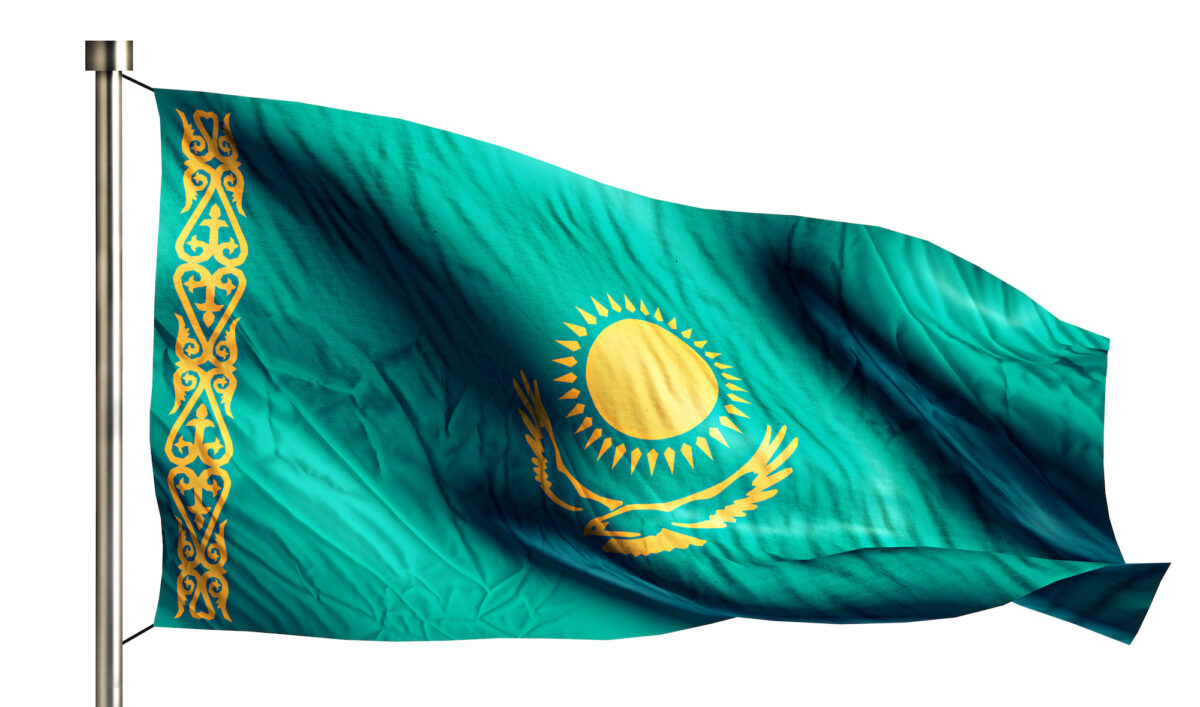The role of judges in addressing critical health and social issues is pivotal. The justice system can either hinder or facilitate social and public health efforts to ensure equitable healthcare, ultimately contributing to the achievement of universal health coverage with inclusivity. The establishment of an independent, impartial, accountable, and professional judicial system, coupled with the protection of fundamental rights, is increasingly becoming a focal point of discussion in regions where certain countries are aspiring to join the European Union.
The EECA Judges’ Forum on HIV, Human Rights, and the Law, scheduled for November 27-28, 2023, in Chisinau, Moldova, presents a significant platform for discussing crucial issues backed by the United Nations Development Programme (UNDP). REAct, as an instrument dedicated to human rights, has compiled data shedding light on the judicial system’s role in addressing key challenges.
Legal hurdles:
Between 2019 and 2023, over 20,000 appeals related to human rights violations among key populations were documented in 14 countries of the region. However, only 0.5% of these appeals found resolution through legal proceedings, emphasizing the challenges in accessing justice. Bureaucratic complexities, financial difficulties, and a lack of trust in the justice system contribute to victims refraining from defending their rights.
Barriers to accessing justice:
Victims face obstacles due to complexities in the state-guaranteed free legal assistance system, with issues such as lack of interest, bribery, and the absence of state-appointed lawyers during investigative actions. Courts’ tendencies to side with the prosecution in cases involving vulnerable populations deter victims from pursuing justice. Moreover, court bailiffs, particularly in Kyrgyzstan, are ineffective in collecting alimony, impacting women, who constitute 95% of victims in such cases.
HIV criminalization: situation analysis:
The disclosure of HIV status, and in Uzbekistan, sexual orientation, can trigger criminal cases, irrespective of intent or adherence to antiretroviral therapy (ART). Investigations often violate privacy rights, with statements coerced under pressure from law enforcement. In Tajikistan, 40 appeals under Article 125 were received, resulting in limited positive outcomes, and Uzbekistan, one trial led to a two-year imprisonment despite legal support.
Advocacy for HIV decriminalization:
Efforts toward HIV decriminalization have gained momentum. In 2022, an alternative report to CEDAW on Uzbekistan recommended repealing laws criminalizing HIV. In 2023, draft laws proposing legal changes to reduce criminalization are being developed in Kazakhstan, Georgia, Uzbekistan, and Kyrgyzstan. These include repealing specific articles and transferring offenses to the framework of general crimes, reflecting a strategic shift.
Future actions:
Looking ahead to 2024, these proposed legal changes will be submitted for public consultation, involving high-level discussions and negotiations with parliamentary members, ministries, and ombudsmen. The aim is to progressively reduce the criminalization of people living with HIV and key populations, fostering a legal environment that aligns with human rights principles.
Drug use criminalization: situation analysis
Law enforcement often uses unrelated articles like “breach of public order” to pursue people, who use drugs, leading to unjustified criminalization. Russia’s repressive drug policy extends its influence to regions like Transnistria, where cases of criminalization without intent to sell have been recorded.
Drug use decriminalization: advocacy and progress
Efforts toward drug use decriminalization have gained momentum. In 2022, the EECA Commission on Drug Policy (ECECACD) initiated its work, outlining guiding principles for effective and humane drug policies. In 2023, Kyrgyzstan, Georgia, and Moldova developed drug policy road-maps, focusing on repealing specific articles and introducing alternatives to punishment. High-level country visits facilitated progress in Lithuania, Kyrgyzstan, and Moldova, while an OHCHR report in 2023 highlighted drug use challenges in the region.
Same-sex criminalization and discrimination
Instances of discrimination persist, such as classifying a same-sex kiss as disorderly conduct in Uzbekistan and persecuting gay men in Tajikistan. A violent attack on a trans* woman faced judicial denial in Kazakhstan. Responses include case submissions to OSCE, alternative reports, and statements on LGBT discrimination in Central Asia during the High-Level Political Forum on Sustainable Development.
Sex work criminalization: uncovering injustices
In Kyrgyzstan, despite sex work not being criminalized, sex workers face pursuit, fines, and detainment for non-compliance or disorderly conduct. Extortion is prevalent, with 314 appeals reporting bribes by local police officers. In Uzbekistan, sex work is considered an aggravating circumstance, leading to severe sentences. Detentions involve compulsory HIV and STI testing, often with the purpose of extortion. Crimes involving sexual assault against sex workers, especially by police officers, are challenging to bring to court due to the lack of necessary infrastructure and the difficulty of proving allegations.
Women in focus: addressing sexual assault challenges
Crimes involving sexual assault, particularly when the victim is a sex worker and the perpetrator is a police officer, pose significant challenges in Central Asian countries. The absence of ratification of the Istanbul Convention further compounds these challenges.
Conclusion and next steps:
The data presented by REAct at the EECA Judges’ Forum highlights the pressing need to confront legal obstacles, champion HIV decriminalization, and foster a justice system that protects the rights of individuals and key populations grappling with HIV.
Examining the intricate legal challenges across the EECA region underscores the necessity for a holistic strategy. Advocacy initiatives for drug use decriminalization, combatting discrimination, and ensuring justice for vulnerable groups must persist as overarching priorities. Looking ahead to 2024, the emphasis should shift toward enacting legislative changes aimed at diminishing criminalization across diverse spheres. This approach aims to cultivate a legal landscape that not only adheres to human rights principles but also champions inclusivity.



